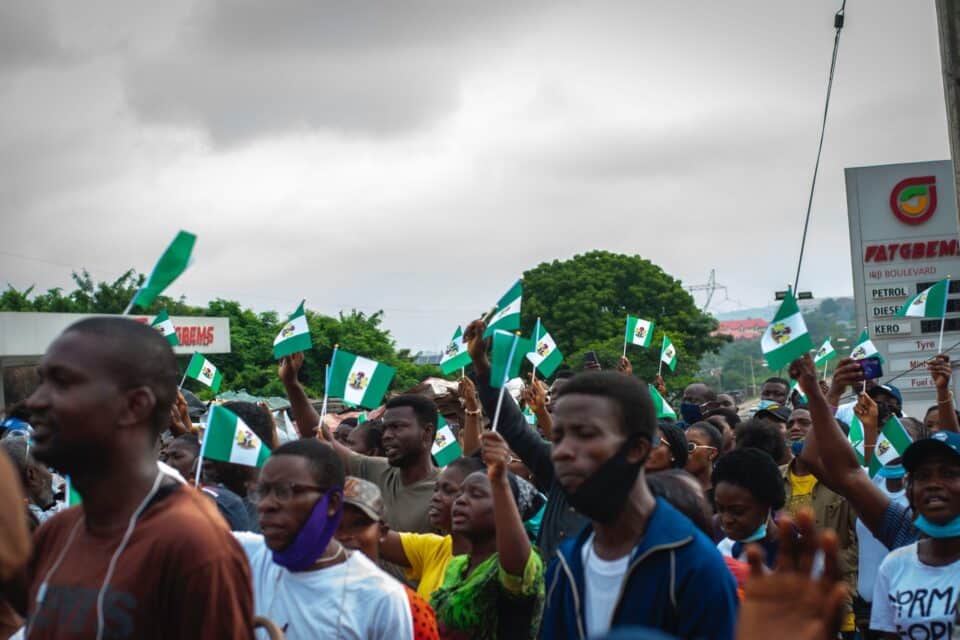Help our local partners realise their vision of hope for their communities

This month HART is focusing on genocide and the threat to our partner countries across the world.
North and middle-belt Nigeria has a long history of intense ethno-religious struggles for territory, economic opportunity, and agricultural resources. Poverty, declining education provision, a lack of development and a lack of opportunities for young people in the areas have all contributed to the deadly inter-communal violence between the semi-nomadic Fulani herdsmen and local Christian farmers in recent years. Additionally, Boko Haram (which translates to “western education is forbidden”) continue to cause havoc in these areas as they attempt to overthrow the Nigerian Government and replace it with an Islamic State through a campaign of bombings, abductions, and assassinations. In the last few years, violence has reached an unprecedented scale and frequency and over the last five years, whole communities have been displaced resulting in the loss of lives, livelihoods, land, and harvests. In July 2020, it was estimated that Nigeria had approximately 3.4 million displaced persons.
Whilst the worsening religious violence in Nigeria has not been officially deemed as “genocidal,” in June 2020, Baroness Cox and the All Party Parliamentary Group for International Freedom of Religion and Belief published a report entitled ‘Nigeria: Unfolding Genocide?’ The report concluded that the worsening and vicious violence terrorising the Middle Belt and northern states of Nigeria is being driven by religious motivations, primarily by Islamic fundamentalist groups such as Boko Haram, the Islamist Fulani and ISWAP (an offshoot of Islamic State).
Moreover, in December 2020, after a decade-long preliminary investigation, the International Criminal Court announced that the statutory criteria for opening an investigation into the situation in Nigeria had been met. In the same month, the United States designated Nigeria as a Country of Particular Concern under the International Religious Freedom Act of 1998. Whilst earlier this year the charity Open Doors ranked Nigeria the 9th worse country in the world for religious persecution of Christians because of the worsening terrorisation of Christians by fundamentalist militant Islamic groups.
The specific targeting of Christian Nigerians, the kidnapping of children and the attempts to displace and eradicate Christian populations means that the violence in Nigeria easily meets many of the criteria used by Genocide Watch to determine whether genocide is taking place.
The ongoing insurgency of the Islamist Fulani herdsmen in Nigeria’s north and middle belt regions has seen thousands of innocent civilians killed in recent years as these well-armed Fulani militants continue to attack rural villages. In 2019, Sub-Saharan Africa recorded the second highest number of deaths from terrorism, overtaking the Middle East and North Africa. According to the Global Terrorism Index 2019, the primary driver of the increase in terrorism in the region was the rise in terrorist activity in Nigeria, which was attributed to Islamist Fulani extremists.
Furthermore, Boko Haram has killed more than 27,000 civilians in Nigeria. That is more than the number of civilians killed by ISIS in Iraq and Syria combined. Whilst reliable statistics are hard to source, it is estimated that more than 300,000 persons have been displaced in the on-going conflict. In March and September 2020 alone, 220 people were killed in southern Kaduna state. One example of the hardship faced by displaced persons was seen on 3rd August 2020. In Bell Village, Plateau State, acres of crops (maize, corn, soya beans and bell peppers) that had been grown by IDPs were destroyed in a series of Islamist Fulani herdsmen attacks. The IDPs discovered the destruction when they returned to their farms to feed their families. The attack was part of an ongoing attempt to displace Christian farmers by ensuring that they have nowhere to live or grow crops, thus reducing their likelihood of survival.
From October 2020 to mid-January 2021, of the attacks that have been recorded in the media or by the Church, 134 civilians have been killed and 37 abducted. Victims range from a 7-year-old child, to a 25-year-old mother of one, to a 75-year-old man. Nobody’s life is spared. Further highlighting the plight faced by displaced persons, several of the victims were attacked as they travelled from IDP camps to check on their home villages. One such example was on 29th October 2020 when four people were killed in three separate road attacks in Kajuru, southern Kaduna state. Since January 2021, more than 600 children have been abducted from schools in north western Nigeria by militant Fulani and other militia groups seeking to raise money, force conversions and reduce the numbers of the Christian population.
It is a sad reality that much of the world, including the Nigerian Government, continues to turn a blind eye to the worsening, religiously motivated, possibly genocidal, violence afflicting north and middle belt Nigeria.
At 7pm on the 4th May, HART is hosting a free to view, online event with HART Partner Rev. Canon Hassan John to discuss the worsening religious violence in Nigeria so that people can hear first-hand testimony about the situation there and how this violence can be curbed.
To find out more and secure your place, click here: https://bit.ly/3cXEkBn
